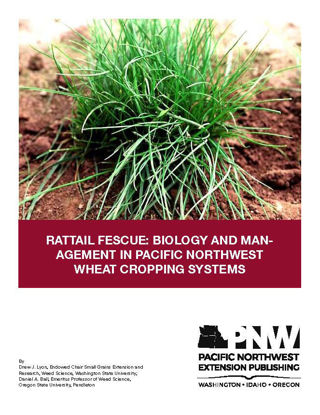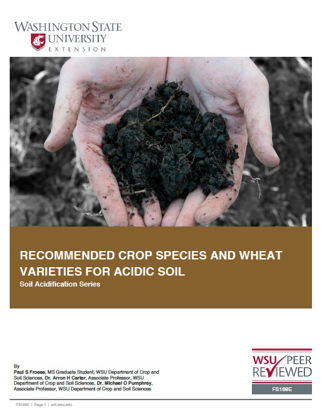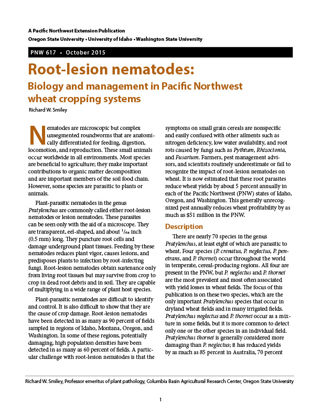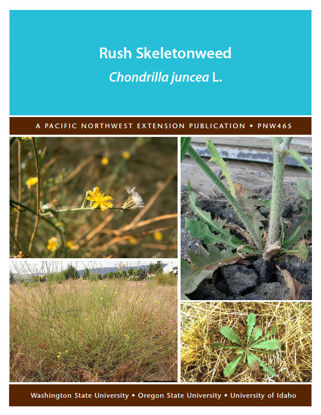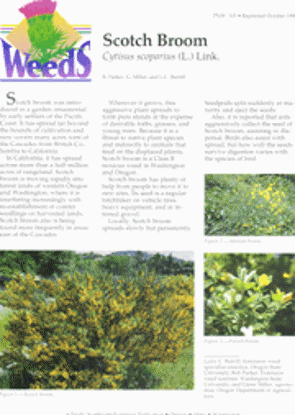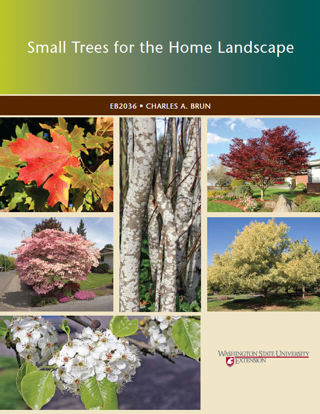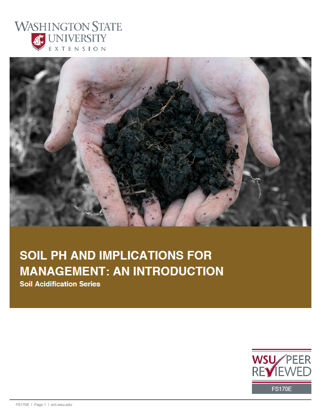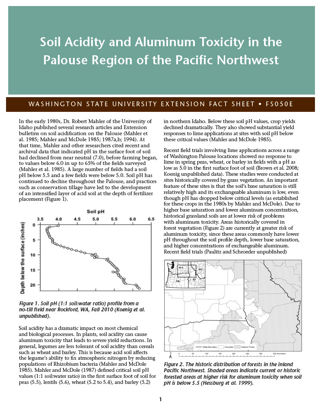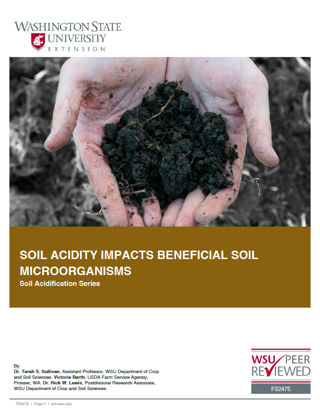You have no items in your shopping cart.
Plants
Plants
Rattail Fescue: Biology and Management in Pacific Northwest Wheat Cropping Systems
Mitigating rattail fescue has become easier: this publication addresses this increasingly common weed in Pacific Northwest cropping systems.
$0.00
Recommended Crop Species and Wheat Varieties for Acidic Soil (Soil Acidification Series)
Decreasing soil pH, also called soil acidification, is a growing concern in eastern Washington and northern Idaho. Researchers and farmers have measured soil pH values below 5.0 throughout the Palouse ...
$0.00
Root-lesion Nematodes: Biology and Management in Pacific Northwest Cropping Systems
To help Washington, Oregon, and Idaho wheat growers reduce the estimated $51 million annual loss to the region from root-lesion nematodes, PNW617 provides detailed results from the latest research ...
$0.00
Rush Skeletonweed
Rush skeletonweed is an exotic herbaceous biennial or creeping perennial plant that has become troublesome in many western states. Rush skeletonweed aggressively infests rangeland, cropland, and dist ...
$0.00
Scotch Broom: Biology and Management in the Pacific Northwest
Classified as a noxious weed in Washington and Oregon, Scotch Broom has overtaken much of the Pacific Northwest from British Columbia to California. It is especially problematic in disturbed areas ...
$0.00
Small Trees for the Home Landscape (Home Garden Series)
Full-size forest trees are beautiful, but aren’t appropriate for urban planting. This illustrated guide explains why and then lists 75 varieties of trees suitable for today’s smaller home landscapes a ...
$0.00
Soil Acidification Series: Implications for Management - an Introduction
Decreasing soil pH, also called soil acidification, is a growing concern in eastern Washington and northern Idaho. Researchers and farmers have measured soil pH values below 5.0 throughout the Palous ...
$0.00
Soil Acidity and Aluminum Toxicity in the Palouse Region of the Pacific Northwest
Soil pH/soil acidity continues to be a major concern among wheat growers in the higher rainfall areas of the Palouse region. This publication is an update on earlier work conducted by Robert Mahler a ...
$0.00
Soil Acidity Impacts Beneficial Soil Microorganisms (Soil Acidification Series)
Beneficial soil microorganisms are also absolutely critical to soil fertility and plant nutrition, but soil acidification in the Pacific Northwest threatens their effectiveness. This publication outli ...
$0.00

